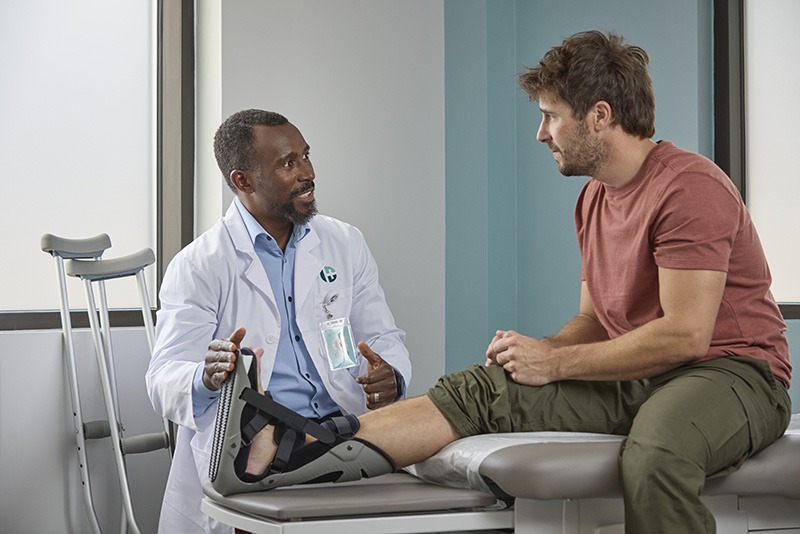January 14, 2025
New locations, services mark hospital district’s 20th year
AUSTIN — Central Health, Travis County’s public hospital district, begins its third decade with momentum as it repairs and reinvents Travis County’s healthcare safety net for residents with low income.
Founded by Travis County voters in 2004, Central Health has evolved from an administrator of public healthcare dollars into a comprehensive system that plans, pays for, and provides access to, care, and coverage to about one in nine county residents – more than 150,000 people a year.
“Central Health was created to make health care in Travis County more equitable, and to improve the lives of all by helping those who need care the most,” Central Health President & CEO Dr. Pat Lee said. “Even in our prosperous urban area, tens of thousands of Central Texans are struggling in communities where life expectancy is up to 15 years lower than in affluent neighborhoods just miles away. This stark disparity is unacceptable, and Central Health is taking decisive action to close the health gaps that impact our most vulnerable neighbors.”
For decades, Travis County has lacked sufficient capacity in its healthcare system, particularly for specialty care, to meet the needs of the entire community, including those with low incomes who rely on safety-net care. Central Health is changing that, as it implements a seven-year, $800 million investment program to close the biggest gaps in the safety-net system.
New locations for care
Physicians and clinicians who work for Central Health now deliver care at clinical sites that are accessible to the highest need Travis County neighborhoods. These include its first permanent specialty clinic at the venerable Rosewood-Zaragosa complex in East Austin; specialty care at the East Clinic (2nd and Comal) and Capital Plaza; respite care for patients who lack stable housing and need a place to heal; and a Transitions of Care program that keeps patients healthy as they move from hospitals to skilled nursing, care homes, and other settings.
Central Health’s new Hornsby Bend Health & Wellness Center in eastern Travis County, which opened in the fall of 2023, now provides care in a booming neighborhood – near the Tesla global headquarters – that had previously been more than 15 miles from the nearest physician. On tap for 2025 are the opening of the Del Valle Health and Wellness Center; new services, including respite care, at Central Health’s Downtown Campus (the old Brackenridge Hospital site); and major construction on Central Health’s new clinical and administrative hub at Hancock Center (in Austin’s former Sears flagship store).
New lines of service
Central Health’s sound planning and fiscal management allowed the district to speed up its implementation in 2024 of an impressive array of new services, including cardiology, clinical pharmacy, dietetics, gastroenterology, hepatology, infectious disease management, nephrology, podiatry (including wound care and X-ray), pre-operative assessment for patients needing surgery, psychiatry and behavioral health counseling, pulmonology (including pulmonary function testing), supportive and palliative care, and ultrasound.
This expansion has supported 3,000 patient encounters in just the last three months of 2024 (the first quarter of fiscal year 2025), along with 6,000 encounters in the year prior.

Reaching the most vulnerable
Central Health stepped up in 2024 as a leader, expert, and partner with Travis County, the City of Austin, and Integral Care to save lives and address Central Texas’ gravest challenges. These efforts included primary, specialty, and post-acute (respite) care for patients without homes, with connections to social services and ultimately to housing. Central Health also began providing care for Travis County jail inmates, along with diversion services to help patients who need to be treated rather than incarcerated.
Central Health also broadened its distribution of naloxone (Narcan) inhalers throughout the community, an easy-to-use and effective way to save lives threatened by opioid overdose.
Along with Central Health itself, the system includes CommUnityCare, Central Texas’ largest network of community health centers, and Sendero Health Plans, a nonprofit community-based health insurer that offers plans through the federal Health Insurance Marketplace. Sendero has earned four-star ratings for quality and customer satisfaction for three years running from the Center for Medicare and Medicaid Services — the highest ratings of any insurer in Texas.
The Central Health system adopted a new shared brand identity in 2024 that reinforces the relationship between the system members and is working more closely with system and community partners to build a better healthcare system for all Travis County residents.